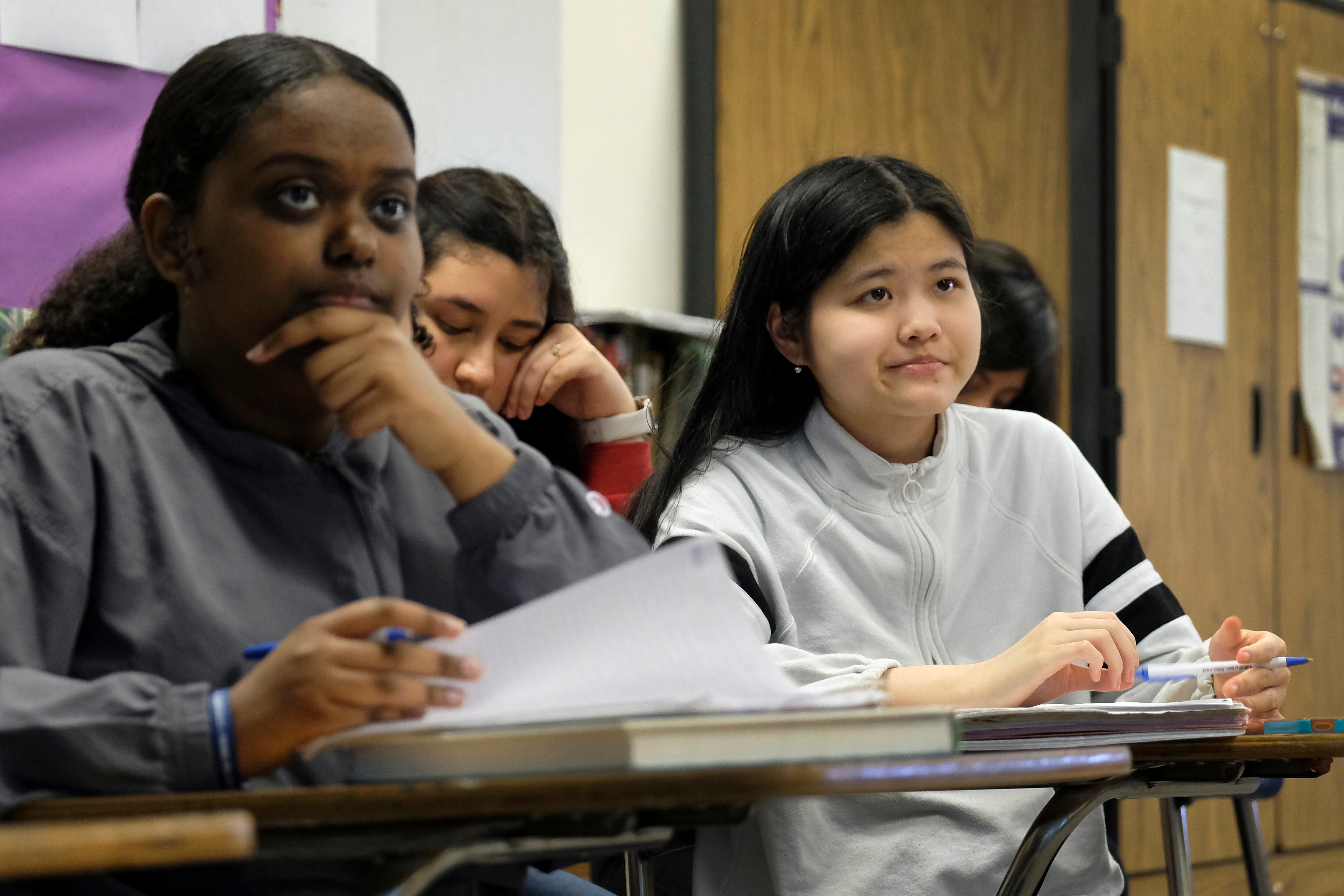Superintendents in Marion County say they will work to eradicate racism from their schools, pledging to take action following days of protests against racial injustice in Indianapolis. But it remains to be seen if their recent shows of support will translate into policy changes.
The county’s 11 district leaders released a joint video last week denouncing racism and lit up high school sports stadiums on Friday night in honor of George Floyd, a Black man killed last month by police in Minneapolis. They promised to reexamine their curriculums and training for both teachers and students.
But making more substantive changes — the kind of changes protestors and community advocates are calling for — will be more difficult to execute.
“They have to look at, honestly, how to dig deeper into it,” said Jessica Louise, an organizer with Indy10 Black Lives Matter. “We are transitioning into a time where people are not soothed by just performative platitudes, and honestly that’s what this comes across as.”
Louise said reframing curriculum is important, but schools also need to change the discipline practices that disproportionately punish Black students, create a safe environment for teachers of color, and eliminate police officers in schools. A school’s anti-racism effort should be led by students, she said, rather than chosen and imposed by adults.
After years of trying to address issues including teacher diversity and discipline on their own, district leaders said it’s important to pool their resources amid the public momentum protesters have created. The goal is ultimately to create better policies and practices that can be implemented county-wide.
But first, some superintendents said, it was important to make a firm statement that Black lives matter and publicly acknowledge that schools have played a role in systemic racism.
“I think that naming of the history of how we have ourselves engaged in racist practices is really important so that we can move forward in the course correction,” said Indianapolis Public Schools Superintendent Aleesia Johnson during a press briefing Tuesday. “Racial equity is the foundation really of being a district that can serve all of our students.”
Johnson is working to expand a racial equity training program to all staff, and the IPS board is poised to approve a policy on racial equity. The document highlights the district’s historical role in supporting racist institutions and pledges to address disparities in academic achievement and discipline for students of color.
Other districts in the county, including Beech Grove and Perry Township, are starting slower, first creating parent and student committees to gather feedback and begin reviewing policies.
“It’s more than one incident or one thing, I think — it’s how we treat people across the board,” said Beech Grove Superintendent Paul Kaiser said. “I think we have to spend a lot more time teaching our kids about the background of our kids.”
Kaiser said Beech Grove “has work to do” in better training teachers and hiring teachers who reflect the student body. The district’s teachers are 97% white, compared to 67% of the student population, according to state data. Beech Grove is hiring three new counselors as a result of its successful referendum, and Kaiser said he will be intentional about hiring people of color.
Perry Township Superintendent Patrick Mapes said one of his first steps will be to create an avenue for students to report racism acts or comments anonymously — a move that follows new allegations that two teachers used slurs and mocked immigrant students. The district is investigating, Mapes said, but may not be able to resolve the situation until school starts.
School systems in other states have taken more drastic and immediate measures in response to protests. In Minneapolis, Portland, and Denver, districts cut ties with local police departments. But there appears to be little momentum for such action in Indiana, despite the fact that school police are 2.5 times as likely to arrest Black students than white students, a Chalkbeat analysis found.
Both Kaiser and Mapes defended their districts’ use of school resource officers, saying they had a positive impact on school culture. Beech Grove is adding three more officers after passing a referendum in November. The district currently has one officer working at its high school.
Mapes said Perry’s police officers are more diverse than the teaching staff — which is 96% white. When asked why the district hasn’t been as successful hiring diverse teachers, Mapes said there aren’t many people of color in the candidate pool.
“I think everybody has the ability to get better,” Mapes said, referring to equity. “And that’s the goal. … We think we can do a better job educating our students so they don’t have racist tendencies.”
It’s not clear how districts will evaluate the success of their policy or procedural changes. Mapes said he looks to improve arrest, suspension, and expulsion data every year. Teacher diversity is also easy to gauge. For Louise, success means the community and administrators no longer feel they need police in schools. But some improvements are meant to lead to less easily identifiable changes, such as how students treat each other.
“There’s never an ending point,” said David Marcotte, executive director of the Indiana Urban Schools Association, which represents city public schools throughout Indiana and helped put together the initiative. “This needs to be something on the forefront of our minds. We’re never ever going to say, ‘Ok, great, we’re done now.’”





